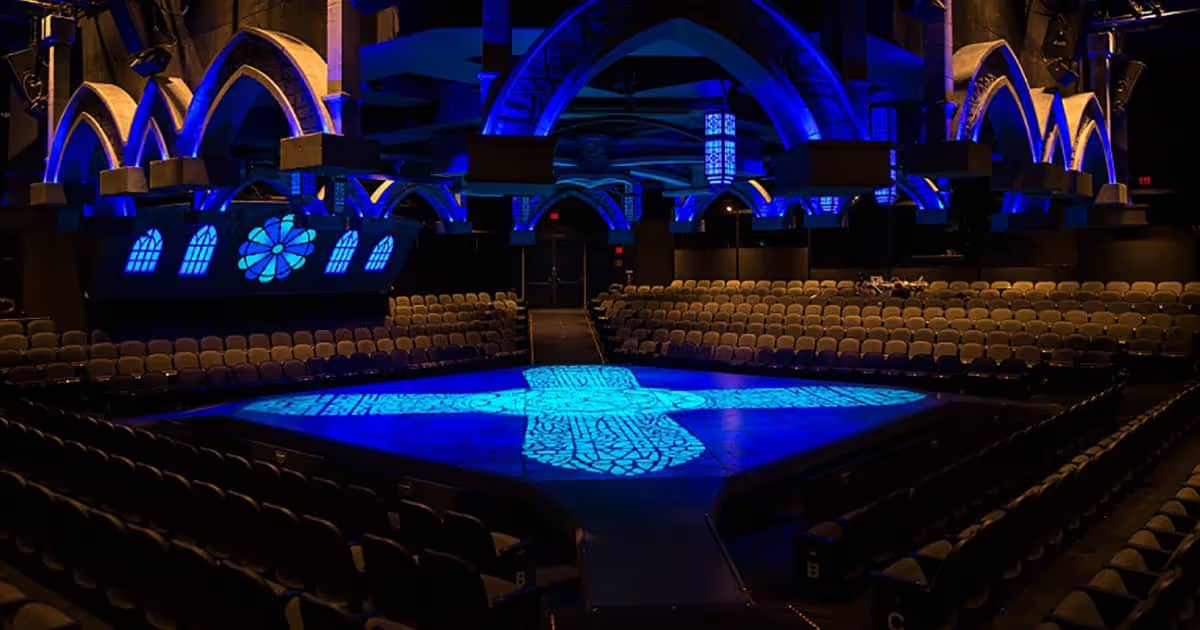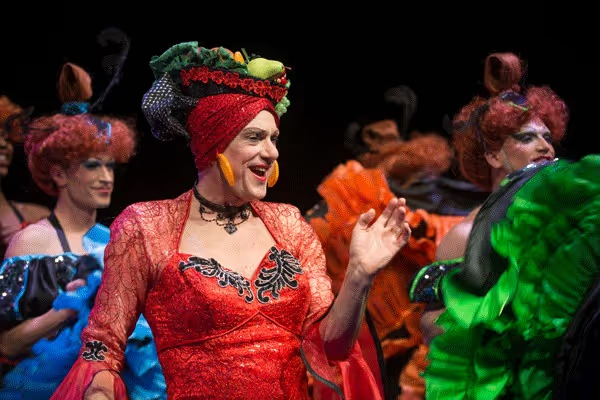Marriott Theatre's 'La Cage aux Folles' makes illusions real
How do you square a circle? And why bother trying?
These questions loom — literally — above the smashing new production of "La Cage aux Folles" at The Marriott Theatre, which is closer to Milwaukee than Madison and boasts more than 6,000 subscribers from southern Wisconsin. (This production also boasts regular Milwaukee actor Liz Norton as well as Elizabeth Telford, whose roles in Milwaukee included a great Maria in Skylight Music Theatre's "The Sound of Music.")
Three huge squares and a circle hover above the Marriott's in-the-round stage as one of many reminders in this show that not all shapes are straight.
Questions inherent to recognizing and negotiating difference are intrinsic to "La Cage" itself, and not just because it features two gay men and their struggles to love and accept themselves. These questions are also baked into the very structure of this show, which can easily veer into campy silliness — particularly after intermission — even as it stakes a deeply felt claim for tolerance.
I've seen many a "La Cage" where fumbles involving these challenging tonal shifts reduce the entire show to a cheap vaudeville act of the sort one finds in some renditions of the Saint-Tropez nightclub where the couple of Georges and Albin are, respectively, the emcee and the drag queen star.
One immediately knows that director Joe Leonardo has something different in mind when the club's Cagelles — colorfully bedecked drag performers including Adam Estes, who has appeared on many Wisconsin stages — launch into "We Are What We Are."
Their act may, as they tell us, be "half real and half fluff," but these Cagelles also make very clear that the illusions they create are vital to their identity, enabling them to express what they're often forced to hide.
Nancy Missimi's ravishing costumes and Melissa Zaremba's gorgeous choreography provide a feast for the eyes, and that's the point: these men are also proudly beautiful women, upsetting our hidebound notions of gender by offering an alternative — and playfully issuing a deadly serious challenge to the way we define our bodies and ourselves.
We get more — much more — of the same from the Cagelles' ringleader: Gene Weygandt's outstanding and extremely funny Albin, whose over-the-top dramatics work much like his fellow dancers' numbers: Serving and strengthening the inner core of a man who is coping as best he can with homophobia that leads his own adopted son to disown him, en route to marrying up.
Weygandt's resulting rendition of "I Am What I Am" — the show-stopping anthem in which Albin reveals just what he's made of — is electrifying, in part because it's so obviously a defiantly willed performance, delivered by an aging queen who refuses to go quietly into the night.
No wonder Georges loves him; as embodied by David Hess — tightly wound and far less secure than his debonair manner suggests — it's also clear that Georges desperately needs him. It's Albin who gives Hess' impressively voiced Georges the courage to break into exuberant song and express how he feels — and who had me joyously singing, all the way home to Milwaukee.











